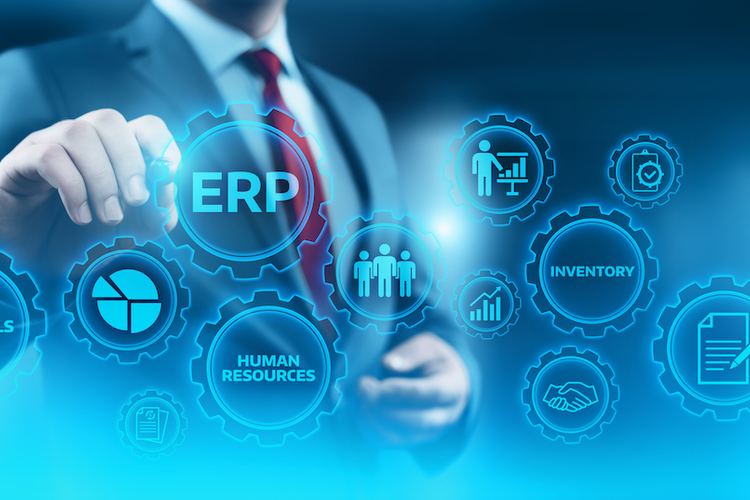10 Tips for Choosing the Right ERP Solution

This blog provides you with a thorough guide that includes a checklist and guidelines to help you choose the best ERP system for your company.
The workforce has transformed as a result of technological revolutions throughout the course of time, and digital technologies have developed more quickly than any other breakthrough. Businesses that use technology have begun to complete various tasks more quickly, more easily, and more affordably. ERP (Enterprise Resource Planning) technology is one of these technologies. Businesses require an ERP system that can combine essential company operations with ease. Numerous advantages come with a well-selected ERP platform, such as standardised corporate operations, data-driven decision-making, enhanced operational efficiency, and linked business processes. It might be difficult to choose an ERP that meets the unique demands of your business when there are so many alternatives available. This blog provides you with a thorough guide that includes a checklist and guidelines to help you choose the best ERP system for your company. ERP is a company management tool that unifies key corporate operations into a single system. ERP software integrates supply chain management, accounting, operations, human resources, and other vital tasks into a one, all-inclusive platform. Through this connectivity, businesses may increase data accuracy, optimise workflows, and have real-time visibility into every aspect of their operations. Choosing the best ERP for your company is an essential initial step in expanding your business. It necessitates a thorough examination of your organization's data, operations, and business procedures. The following 10 tips can help you get started in the correct direction. Establishing your company needs and the goals for ERP solution implementation is crucial before you start the selection process. Consider the ways that an ERP might help with important company operations including supply chain management, inventory management, financial management, project management, customer relationship management, and human resources management. You may assess how effectively the ERP system fits your needs and goals after you've determined them. Employees need to have mobile access to essential information and features in today's hectic work environment. As a result, selecting an ERP system that provides strong support for mobile users is crucial. With the use of mobile ERP apps, staff members can manage inventory, approve purchase orders, and access real-time data from their smartphones or tablets. Seek out ERP programs with native mobile applications and responsive designs for a consistent user experience across platforms. Aside from selecting the appropriate ERP system, you also need to think about how it will be implemented. Planning, training, data migration, testing, and go-live are all part of this. Selecting a provider who offers thorough ERP solutions in Dubai with implementation assistance and advice is crucial, as is allocating sufficient time and resources for the process. An ERP software implementation's initial scope must be managed to minimise risk and guarantee success. After the initial implementation, you'll probably have an idea of future improvements. When comparing different ERP providers, think about how the technology will support your company plan both now and in the future. The new technology you choose should be in line with your organization's strategic goal, regardless of whether your future plans call for expansion, new markets, or a merger with another company. A user-friendly ERP system that reduces complexity and encourages use at all organisational levels is crucial. Seek out user-friendly interfaces, efficient processes, and contextual assistance tools that help people complete their activities quickly. Additionally, take into account how the ERP system may interpret data and display pertinent information according to the roles and responsibilities of users. The success of your business depends on a successful ERP setup and continuous support. Here are some qualities to consider in a vendor's offerings: The ERP software you select should work with other programs and systems that your company uses. In addition to ensuring interoperability with current systems like project management software, financial software, and customer relationship management (CRM), it should facilitate smooth data flow across departments. Seek out ERP options with pre-built APIs (Application Programming Interfaces) or connections that facilitate simple data transfer between systems. The first focus should be security. To protect sensitive data and shield your company from any cybersecurity risks, your ERP of choice must have strong data security capabilities. Centerpoint ERP places a high premium on data security, using strong security protocols to safeguard client information. Even while initial expenditures are a significant factor, assessing the long-term expenses related to setting up and operating an ERP system is equally important. Take into consideration factors like implementation services, training, continuing support, and updates in addition to the original licensing price. Select an ERP provider that provides clear pricing and adaptable license choices based on your needs and budget. Additionally, evaluate the ERP system's total cost of ownership (TCO) during its anticipated lifespan, accounting for costs related to integration, customisation, and system upkeep. When choosing an ERP, the vendor's product plan needs to be a major consideration. The roadmap offers information about the software company's objectives for the ERP solution as well as its dedication to innovation. It also enables you to evaluate how well these plans fit your company's objectives and tactics. Considering each of these aspects will assist you in selecting an ERP system and supplier that best suits your needs. You will be able to link key company divisions, automate manual procedures efficiently, reduce mistakes, and eventually increase operational profitability and efficiency.WHAT IS ERP?
HOW TO CHOOSE AN ERP SYSTEM FOR YOUR BUSINESS
Determine Your Business Goals
Mobile Support
Evaluate The Process Of Implementation
Scalability
Ease Of Use And Contextualisation
Implementation And Support Services
Assess Integration Proficiency
Data Security
Long-Term Cost
Examine The Product Roadmap Of The Vendor
CONCLUSION
